Introduction: Gena Philibert-Ortega is a genealogist and author of the book “From the Family Kitchen.” In this guest blog post timed with kids going back to school, Gena shows how valuable school records—in archives and in newspaper articles—can be in tracing your family history.
Once again it’s that time of the year when children’s parents rejoice: the start of a new school year! The beginning of a school year is also a good time for family history researchers to consider how much old school records can help them document their ancestors. Compulsory education has long been a fact of life in America, starting with the first attendance law passed in Massachusetts in 1853. As long as kids have been going to school records have been kept chronicling their school days.
Looking to find information about your ancestors when they were children? Or perhaps you want to find out more about your ancestors who were in the education field, either as teachers or administrators. Consider seeking out local and school histories, school and federal censuses, yearbooks and alumni lists, just to name a few resources. As with any research project, begin by searching your home for sources like attendance records, report cards, rewards of merit, yearbooks, autograph books, and photos. Next, consult the Family History Library Catalog. Conduct a search on the place your ancestor lived and then look for the subject heading “Schools” for microfilmed records that can be viewed at your local FamilySearch Center.
Once you have searched the Family History Library for historical school records, look for collections at a state archive, library or historical society. These school records most likely can be found in a manuscript collection. A look at the Colorado State Archives showed school records that document students as well as teachers. A search using the keyword “School” on the website Online Archive of California, a union catalog of California repositories, found over 6,000 hits including photos, dance cards, report cards, student publications, school district records, and parent association records, just to name a few.
Don’t limit your ancestral school research to just documents. School life is an important part of every community, and local newspapers print many different types of articles about schools, students, teachers and administrators. Searching an online archive of historical newspapers using school-themed keywords can turn up a surprising amount of information on your ancestors. The following examples of school-related news articles are all from GenealogyBank’s online collection.
This listing of Chicago-area schools provides a glimpse at all the students who graduated in 1895. Notice that the list is broken down by school and includes names of students who won awards. These school graduation lists continue even today, especially in small town newspapers.
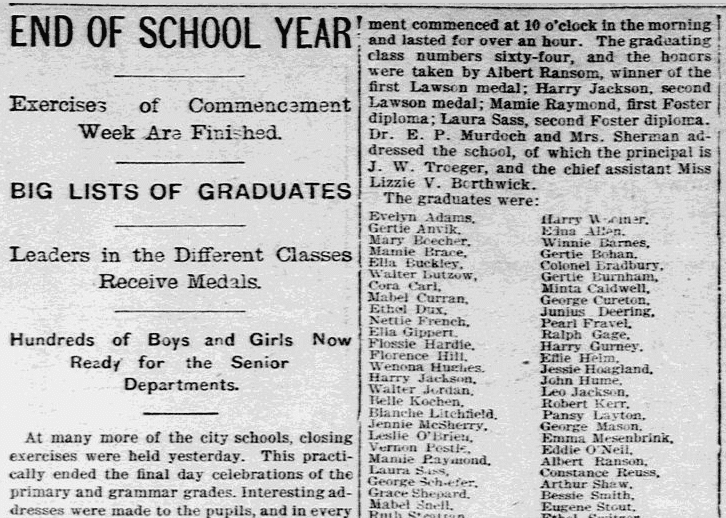
School statistics can give you an idea of the school population for where your ancestor lived. Though they will not provide the names of students, these statistics give you some information about what the area was like in your ancestor’s time.
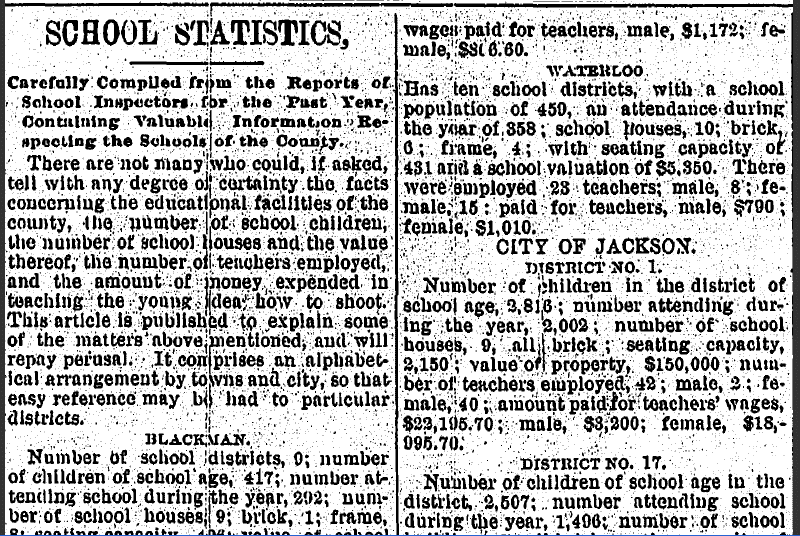
Individual students may have been mentioned or even photographed for a newspaper. Such newspaper clippings can provide valuable family keepsakes. Activities such as sports and student clubs are often documented in newspaper articles.
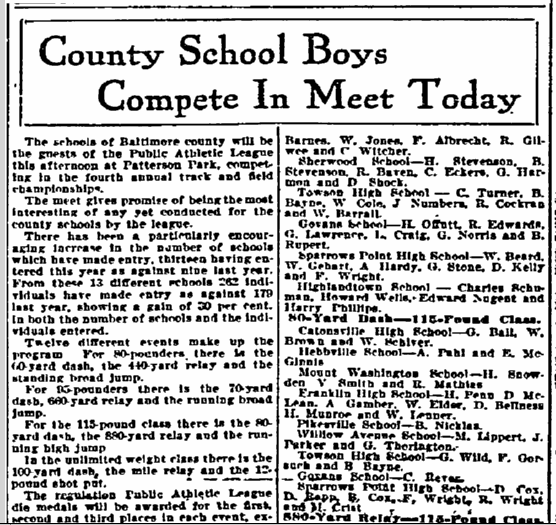
Did your ancestor work at a school as a teacher or administrator? Don’t forget that they too could be mentioned in an old newspaper article. The following news article provides a list of school personnel and what schools they were assigned to in Dallas.
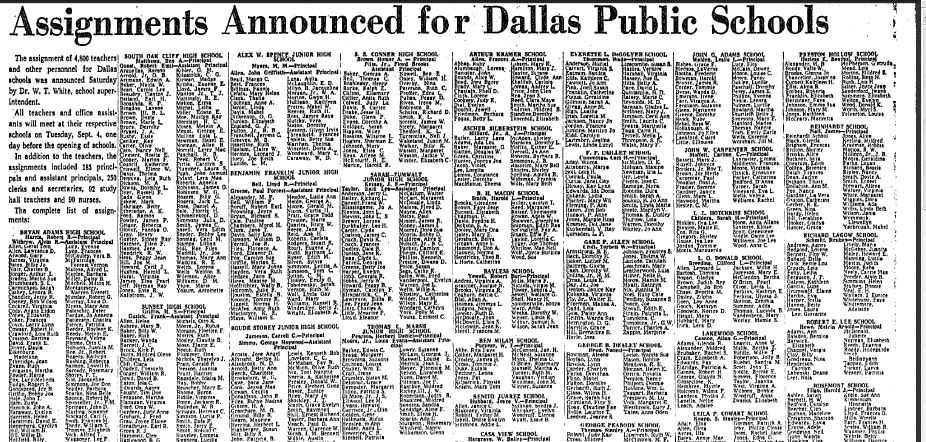
Was your ancestor a brainiac? One way kids made it into the paper was for their outstanding academic achievements.
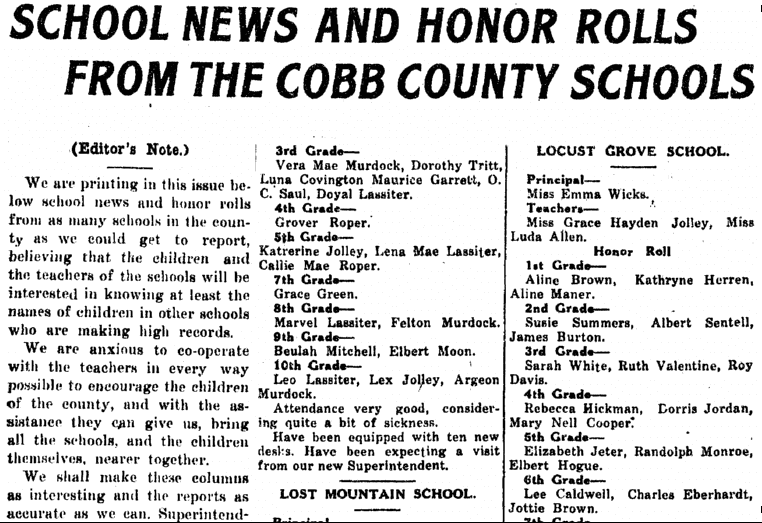
Today we are used to hearing about school violence but it’s a mistake to believe that this is a new phenomenon. Consider this story of a 12-year-old boy who died from a school hazing incident back in 1900. While the successes of students are celebrated in the newspaper, there are also reports documenting tragedies.
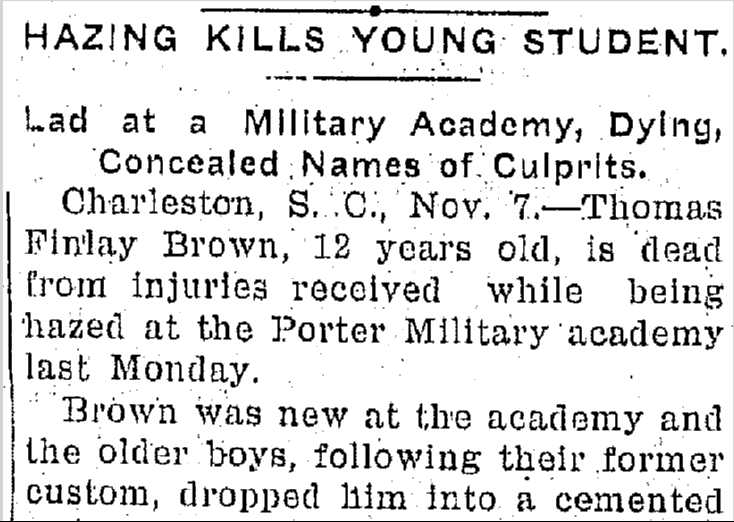
Remember to include school records of all kinds when filling in details on your family tree, including articles from local newspapers. You’re likely to find information and stories about your ancestors you can’t find anywhere else, especially from their younger days.
